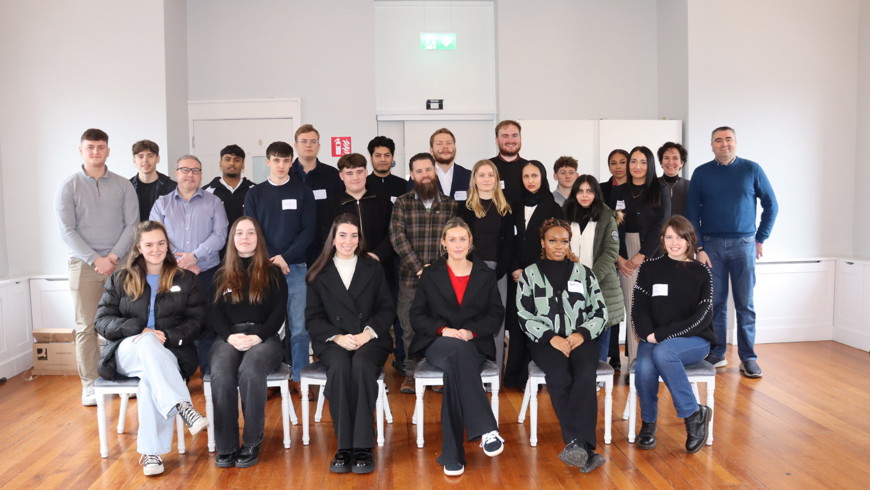
HSE Technology and Transformation Interns Looking Back to the Future
Eoin Fitzsimons - Introduction
Starting my internship with the HSE’s Technology and Transformation Department in February 2025 marked a major transition from academic life to the professional world. Coming from a BSc in Computing, I was eager to apply my knowledge in a real-world setting and gain insight into how technology supports healthcare delivery at a national scale.
My role was based in Executive Support, where I assisted directors and new staff across multiple sites. I was responsible for setting up and configuring IT equipment, supporting onboarding processes, troubleshooting technical issues, and ensuring smooth AV setups for high-level meetings. While the work was often hands-on and operational, it gave me a front-row seat to the inner workings of enterprise IT in a public sector environment.
Highlights and Achievements
Some of the most rewarding moments came early on — shadowing experienced team members, completing my first solo setups, and gradually being trusted with more responsibility. I supported onboarding sessions, configured VPNs for remote staff, and managed IT inventory across multiple locations. I also contributed to executive-level meetings by setting up AV equipment and troubleshooting issues in real time.
These tasks helped me build confidence and develop a sense of ownership. I was proud to be someone the team could rely on, especially in high-pressure situations where smooth technical delivery was essential.
Learnings and Growth
The placement helped me grow in ways I hadn’t anticipated. I became more adaptable, learned to communicate clearly with both technical and non-technical users, and developed a deeper understanding of how IT supports healthcare operations.
One of the most valuable lessons I learned was about myself — I discovered that I’m more drawn to structured, analytical roles than to physically demanding or highly mobile ones. This insight has helped me refine my career goals.
Leah Gilmore - Introduction
I first began my internship as a National Shared Care Records intern in February 2025. Over the past few months, I’ve gained very valuable overall experience, and I’ve learned a huge amount thanks to the generous support of my manager, my team and many others across the organisation.
During my placement, I had the chance to work on a wide range of tasks. In relation to data management, some of my work involved comparing datasets, cleaning inconsistencies and pulling data from various sources like surveys. A major upside to working with data is that it has greatly sharpened my attention to detail, as well as assisted in strengthening my overall knowledge of data in a healthcare setting.
I’ve also explored the technical architecture behind some of the services my team supported, conducted extensive research to key systems and standards such as HIPE, FHIR and Healthlink, as well as be introduced to an overall Service Introduction.
Highlights, Achievements, Learnings and Growth
One of the biggest achievements was becoming much more confident in working with larger, previously intimidating datasets. Whether it be reviewing anonymised information or interpreting survey results, I learned to work methodically step-by-step.
Taking part in a wide range of workshops also helped me greatly in building my overall technical knowledge as well as greatly strengthening my communication and collaboration skills. Throughout my internship, I’m confident in saying I’ve developed skills I know I’ll carry into the future.
Advice for Future Interns
To students preparing for their own placements, we’d offer this advice:
- Set clear expectations early — understand the role and responsibilities before you start.
- Be proactive — ask for tasks, shadow colleagues, and seek out learning opportunities.
- Learn the context — understanding why you’re doing your task before you start assists greatly.
- Reflect often — use the experience to learn about your strengths, preferences, and goals.
- Make use of downtime — explore as much as you can when things are quiet.
- Document your work — it helps with reports, interviews, and personal growth.
-
Stay open-minded — even less-than-ideal roles can teach you something valuable.
